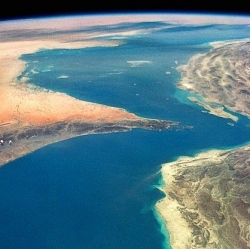
A Russian rocket carrying a Mexican satellite has malfunctioned and burnt up over Siberia soon after launch on Saturday, Russia’s space agency says. The Proton-M carrier rocket broke down minutes after it was launched from Kazakhstan on Saturday morning, the Roscosmos agency said. The cause of the accident is being investigated.
Russia’s space programme has experienced a series of embarrassing mishaps in recent months. Earlier reports said that the rocket had crashed in Siberia. On Tuesday Russia was forced to delay the return of three astronauts on board the International Space Station (ISS) after an out-of-control unmanned cargo ship also burnt up as it re-entered the Earth’s atmosphere on 28 April.
Russia used to be a byword in reliability for space technology, but its reputation has taken a hammering recently. Proton rockets now fail with alarming regularity. Officials will try to find the cause of the latest mishap, but confidence is waning, and many commercial satellite operators have already started to take their business elsewhere.
For those who still have contracts with Proton, this failure is a major headache, in particular for London-based Inmarsat. The world’s largest mobile satellite services operator is in the midst of rolling out Global Xpress, its next-generation constellation of satellites. This is the largest single commercial space project in Britain, worth more than $1.57bn (£1bn), and will provide enhanced communications to ships, planes, the armed forces and broadcasting companies.
Two of the three satellites in Global Xpress have been launched successfully on Protons. The third was due to be launched next month. This will not happen now, and the anticipated September inauguration of global services on the new constellation will likely be pushed back several months as a consequence.
